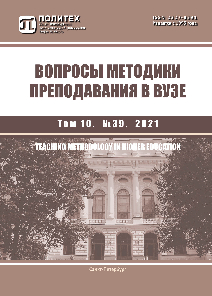Quality of English language knowledge as a condition of sea specialist’s competitiveness
The topicality of this paper is determined by the need of working out specific optimal models, algorithms and mechanisms for the preparation of competitive specialists for constantly developing Maritime industry. The article stipulates the necessity of building foreign language competence in marine specialists whose activity is international by its nature. It is proved that the quality of English language competence is one of the key conditions for the competitiveness of a Maritime specialist. International Convention requirements to the quality and level of expert knowledge are binding for all educational institutions, providing training of specialists in merchant shipping. These requirements are detailed for all sailing disciplines, but require the solution of several problems related to the methodological support of the educational process. Taking into account the factors described in the article influences the quality of foreign language training. Solution of the problems arising in this context, could improve the quality of English language teaching, and the quality of future specialist training. The paper shows the possibility of using the process of learning a foreign language as means of learning professional activities. Practical implementation of this approach is seen in the creation and application of integrated courses that will allow to systematize the acquired knowledge based on previously covered material in different subjects. The conditions of building a foreign language competence, with linguistic and cultural components on the basis of the situational-functional approach are considered. They assume creating an educational situation that allows to focus not only on the change of requirements to the level of specialist in the constantly developing industry, but also on the rate of learning. It is shown that the influence of separate components in the learning process may be changed under different circumstances, however, there is a self-organizing system, which, ultimately, leads to the formation of the specified qualities.



